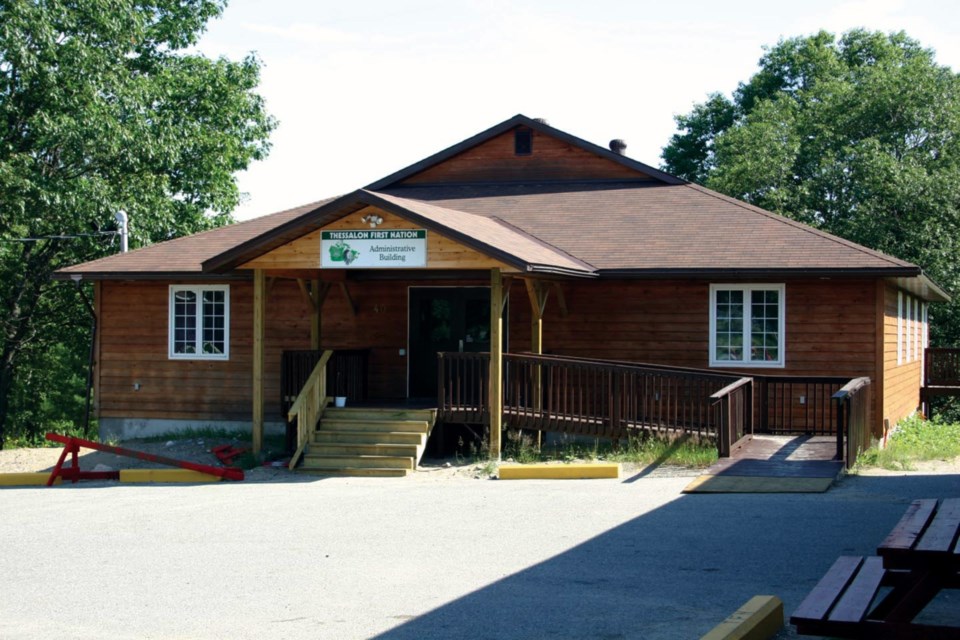Thessalon First Nation employees have joined the United Steelworkers union in a move that’s believed to be the first of its kind in Canada.
The Canada Industrial Relations Board officially certified staff members June 21 — a day that’s recognized across the country as National Indigenous Peoples Day — after an application to unionize was initially filed with the federal labour board in February.
It's estimated that more than 40 Thessalon First Nation employees currently work in the delivery of services provided to community members, including children’s mental health, elder support, personal support work, recreation, student support, custodial services and public works.
“The United Steelworkers (USW) is honoured to have been chosen by the Thessalon First Nation employees as the union to represent them in their workplace,” said USW director Myles Sullivan in a recent news release. “Our union will provide these workers with all the support and resources they need to negotiate a collective agreement that improves their working conditions and helps build a solid future for their families and their community.”
Staff members responsible for spearheading unionization efforts say the relationship with the steelworkers union will allow for the development of workplace policies and a collective agreement in order to protect and support Thessalon First Nation employees, who fall under the jurisdiction of federal labour law.
The staff members — who spoke with SooToday on the condition of anonymity out of fears of reprisal from management — allege that administration for the First Nation has changed some workplace policies on a whim, while engaging in "toxic" behaviour including “harassment and micromanaging” of certain staffers.
“Even if we take a sick day, we get in trouble for that,” one of the staff members said. “If we try to book a holiday that we’re entitled to, we’re denied. Meanwhile, other staff that they support, they never have any issues with what they request.”
Another employee alleges that favouritism exists within the First Nation, with management’s perception of employees trumping actual job performance. “If they deem you’re not with them, they target you continuously,” they said. “They harass you and go after you for things that don't exist. You wouldn’t believe that these things would happen in a professional setting.”
Staff members estimate that more than 30 employees at Thessalon First Nation have either resigned, been fired or taken a leave of absence since a new administration took the reigns following band elections in November of last year.
As previously reported by SooToday, former band manager Mary Jane Wardell sued the First Nation for $850,000 in damages earlier this year over claims that she was wrongfully terminated and kicked out of the band office — without pay, benefits or reasonable notice — for allegedly “failing to be in line with the directive” of new leadership following last year’s elections. The allegations have not been tested in court and a statement of defence has yet to be filed.
“That’s a huge change in our staff numbers for such a small community,” one of the anonymous workers said of the recent upheaval at the First Nation. “This is why we had to push for this union to come in — we weren’t protected. We had to find a way to protect ourselves.”
Thessalon First Nation Chief Joe Wabigwan told SooToday that it would be “inappropriate to comment on past and present employees status in general,” with negotiations over a collective bargaining agreement set to take place down the road.
Wabigwan said the First Nation is looking forward to negotiating an agreement, as it will provide both workers and management with “certainty,” along with “shared responsibility and accountability” for both sides.
“What I can say is that we are a small community. Thessalon's employees are often related to one another, meaning that personal disagreements sometimes spill over into the workplace, which some then call ‘toxic.’ This isn't to say that we don't have legitimate workplace disputes, but the context matters,” Wabigwan said in an email to SooToday. “Thessalon is a fair employer. We follow our personnel policy manual as it provides substantial protections and rights to our employees. We provide a positive and safe working environment. Our goal is to provide secure, well-paying, jobs on reserve to our community members who want to work.”
Former Thessalon First Nation band councillor Megan Wabigwan and Melva Belleau were both acclaimed to the two-member bargaining committee June 27 as the only two nominees. The pair will now work with USW in order to hammer out a collective agreement, which will then be negotiated upon with Thessalon First Nation leadership and management.
USW area coordinator Marc Ayotte believes that while the collective agreement is good for both sides, it will ultimately protect and provide stability to workers who could potentially be terminated once new leadership is elected. Chief and council at Thessalon First Nation are elected every three years under its custom election code.
“It doesn’t matter who gets elected later on — they still have to follow what the collective agreement says, which is a benefit for the members,” Ayotte said.
The USW represents 225,000 members in nearly every economic sector across Canada and is the largest private-sector union in North America.
